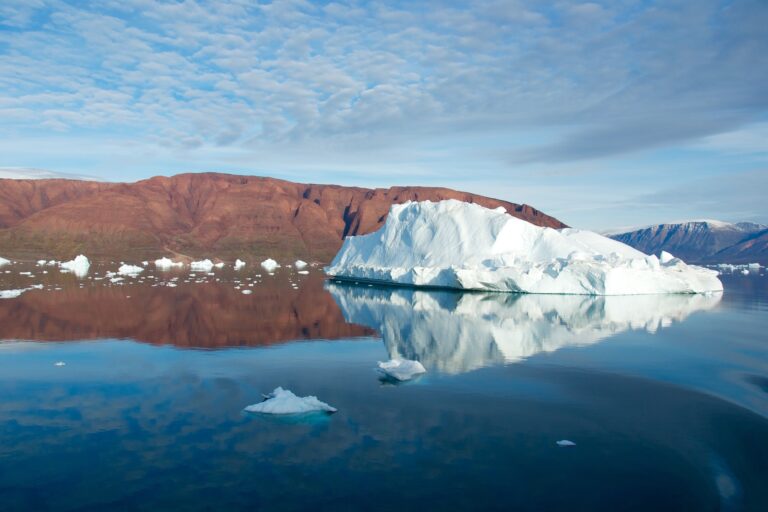Scientists exploring Antarctic climate change have discovered a new and more efficient pathway for the creation of natural aerosols and clouds, which contribute to temperature increases.
The Antarctic Peninsula has shown some of the largest global increases in near-surface air temperature over the past 50 years, but experts have struggled to predict temperatures because little was known about how natural aerosols and clouds affect the amount of sunlight absorbed by the Earth and energy radiated back into space.
Studying data from seas around the Peninsula, experts have discovered that most new particles are formed in air masses arriving from the partially ice-covered Weddell Sea – a significant source of the sulphur gases and alkylamines responsible for ‘seeding’ the particles.
A new study called Open ocean and coastal new particle formation from sulfuric acid and amines around the Antarctic Peninsula, shows that increased concentrations of sulphuric acid and alkylamines are essential for the formation of new particles around the northern Antarctic Peninsula. High concentrations of other acids and oxygenated organics coincided with high levels of sulphuric acid, but by themselves did not lead to measurable particle formation and growth.
An international team of researchers from the University of Birmingham, UK; Institute of Marine Science, Barcelona, Spain; and King Abdulaziz University, Jeddah, Saudi Arabia, studied summertime open ocean and coastal new particle formation in the region, based on data from ship and land stations.
The researchers revealed that the newly-discovered pathway is more efficient than the ion-induced sulphuric acid–ammonia pathway previously observed in Antarctica and can occur rapidly under neutral conditions.
Study co-author, Roy Harrison OBE, professor of environmental health at the University of Birmingham, said, “New particle formation is globally one of the major sources of aerosol particles and cloud condensation nuclei. This previously overlooked pathway to natural aerosol formation could prove a key tool in predicting the future climate of polar regions.
“The key to unlocking Antarctica’s climate change lies in examining particles created in the atmosphere by the chemical reaction of gases. These particles start tiny and grow bigger, becoming cloud condensation nuclei leading to more reflective clouds which direct outgoing terrestrial radiation back to earth and warm the lower atmosphere,” he added.
New particle formation is globally one of the major sources of aerosol particles and cloud condensation nuclei. Existing research suggests that natural aerosols contribute disproportionately to global warming, whilst sulphuric acid is thought to be responsible for most aerosol seeding observed in the atmosphere.
The research team identified numerous sulphuric acid–amine cluster peaks during new particle formation events, providing evidence that alkylamines provided the basis for sulphuric acid nucleation.
“We found that sulphuric acid–amine–water nucleation is a dominant process in the Antarctic Peninsula, with the amines coming from regions of sea ice in the Antarctic Peninsula–western Weddell Sea region,” professor Harrison continued. “Waters in this region with significant amounts of sea ice are rich in amines, and aerosols originating from such regions show a near five-fold enhancement in amine concentrations.”



